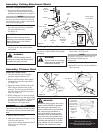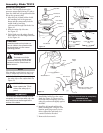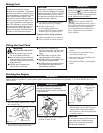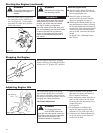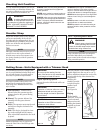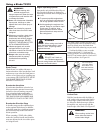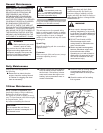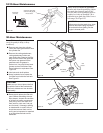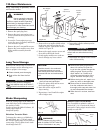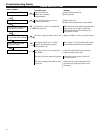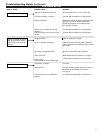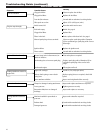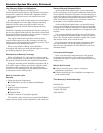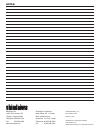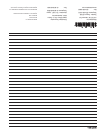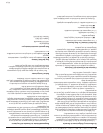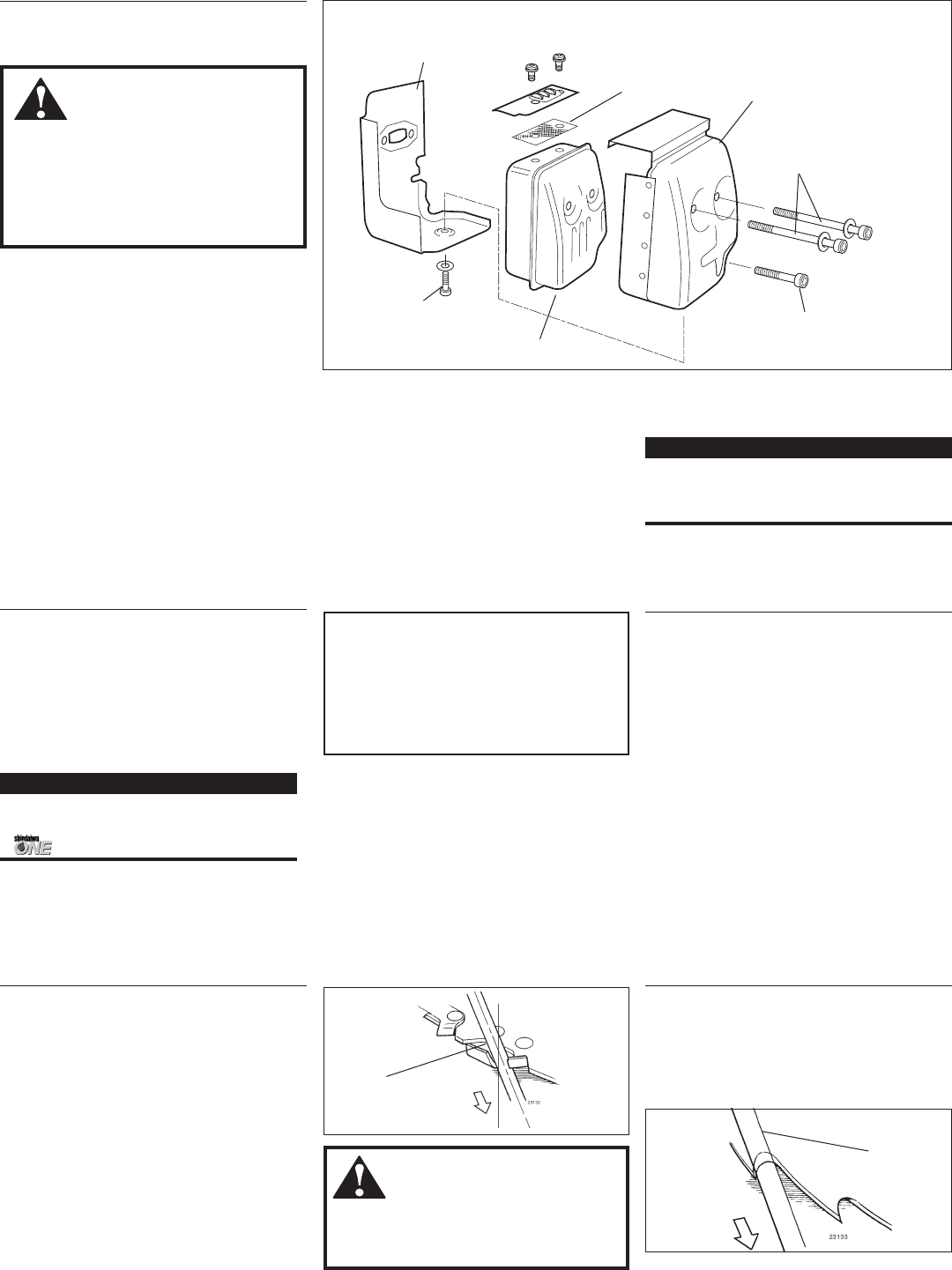
15
Every 135 hours of operation, remove
and clean the muffler.
WARNING!
Never operate the machine
with a damaged or missing
mufer or spark arrester! Operating
with missing or damaged exhaust
components is a re hazard and could
also damage your hearing.
1. Remove the spark plug boot.
2. Remove the two 4 mm engine cover
screws (located at the top of the recoil
housing).
3. Loosen the 5 mm engine top cover
screw (the screw is captive) and lift the
cover from the engine.
4. Remove the two 5 mm muffler screws.
Remove the lower muffler screw, then
lift the muffler assembly from the
engine.
135-Hour Maintenace
23139
Forward
Muffler
Shield
Lower Muffler
Screw
Muffler
5 mm Muffler
Screws
Rear Muffler
Shield
Spark Ar-
rester Screen
Rear Muffler
Shield Screw
Figure 32
5. Remove the rear muffler shield socket
head screw and, while noting the ori-
entation of parts, separate the muffler
shield. See Figure 32.
6. Remove the spark arrester screen and
clean with a stiff bristle brush.
7. Gently tap the muffler on a wood sur-
face to dislodge any loose carbon.
8. Inspect the cylinder exhaust port for
carbon buildup.
IMPORTANT!
If you note excessive carbon buildup,
consult with an authorized servicing
dealer.
9. Reassemble the muffler in the reverse
order of disassembly.
Long Term Storage
n Remove the spark plug and pour
about 1/4 ounce of 2-cycle mix-
ing oil into the cylinder through the
spark plug hole. Slowly pull the
recoil starter 2 or 3 times so oil
will evenly coat the interior of the
engine. Reinstall the spark plug.
n Before storing the unit, repair or re-
place any worn or damaged parts.
n Remove the air cleaner element
from the carburetor and clean it
thoroughly with soap and water. Let
dry and reassemble the element.
n Store the unit in a clean, dust-free
area.
Whenever the unit will not be used for 30
days or longer, use the following proce-
dures to prepare it for storage:
n Clean external parts thoroughly.
n Drain all the fuel from the fuel
tank.
IMPORTANT!
All stored fuels should be stabilized
with a fuel stabilizer such as STA-BIL™,
if oil with fuel stabilizer is not used.
1. Prime the primer bulb until no more
fuel is passing through.
2. Start and run the engine until it
stops running.
3. Repeat steps 1 and 2 until the engine
will no longer start.
CAUTION!
Gasoline stored in the carburetor
for extended periods can cause
hard starting and could also lead to
increased service and maintenance
cost.
Blade Sharpening
When the cutting edges of the blade be-
come dull, they can be resharpened with a
few strokes of a file.
In order to keep the blade in balance, all
cutting edges must be
sharpened equally.
Shindaiwa Tornado
®
Blade
To sharpen the cutters on a Shindaiwa
Tornado Blade, use a 7/32-inch round
file. File the leading edge of each tooth to
a razor edge. The top plate of each tooth
should angle back 30°.
WARNING!
Sharpen only the cutting
teeth of a blade. DO NOT alter the
contour of the blade in any way.
Multiple-Tooth Circular Blade
Use a round file to maintain a radius of
0.04 to 0.06" (1 to 1.5 mm) at the base of
each tooth. Cutting edges must be offset
equally on each side.
Round
File
30°
Round
File
Figure 34
Figure 33
n Remove the remaining fuel from
the fuel lines and carburetor.



